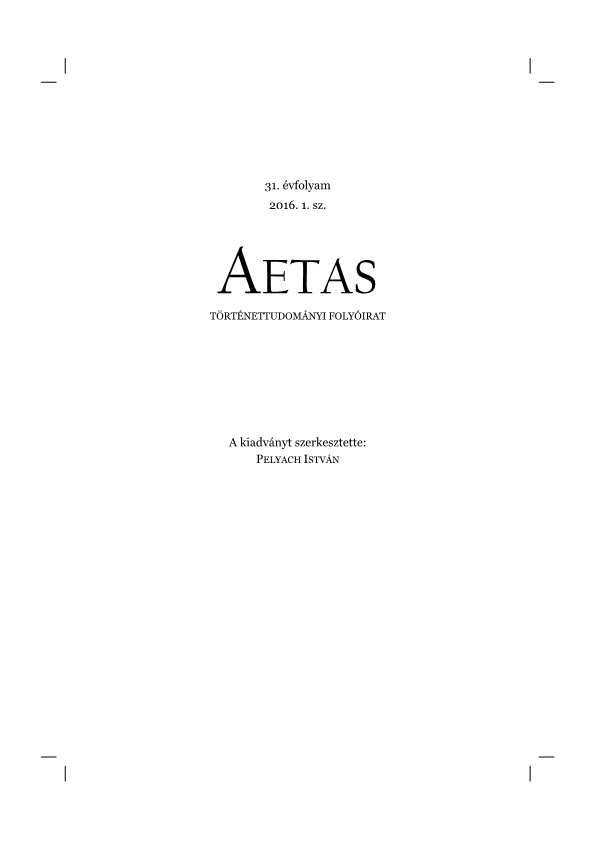Katolikus püspökök kinevezésének minisztertanácsi háttere Magyarországon, Erdélyben, a Temesi Bánságban és a Szerb Vajdaságban II. (1851–1852)
The council of ministers and the appointment of Catholic bishops in Hungary, Transylvania, the Banat of Temesvár and the Serbian Voivodeship II, 1851–1852
Author(s): Péter ZakarSubject(s): 19th Century
Published by: AETAS Könyv- és Lapkiadó Egyesület
Summary/Abstract: In 1851-52, the Church’s political environment in which bishops were appointed was radically transformed. In the hereditary lands growing attention was paid to the support of the new Church policy when bishops were appointed. However, Hungarian bishops protested against the curbing of their primate rights and were against the plan to extend the effect of a future concordat to Hungary as well. Leo Thun, the Minister of Education, who took over Church politics from Interior Minister Alexander Bach, tried to extend his leeway by involving more and more Hungarian bishops in the nomination process. This left less leeway for Archbishop of Esztergom János Scitovszky, who had previously cooperated with the Interior Minister. In the case of the four examined appointments from 1851, Austrian politicians were looking for “strong personalities” capable of suppressing the elements sympathizing with the 1848-49 War of Independence in their diocese. At the same time, the appointment of Lajos Haynald as Bishop of Transylvania revealed the dangers inherent in this politics: the rejection of the war of independence did not automatically mean the simultaneous rejection of Hungarian constitutionalism. In 1852, the appointment process became almost unfathomable due to the large number of candidates. It is interesting that the Hungarian governor gradually lost his influence on the nomination process. The bishops appointed in 1852 were unconditionally loyal to the court, but at least one such ordinary was also appointed whose activity in 1848 was not to their satisfaction (Ignác Fábry, bishop of Kassa). And the conservative Bishop of Szombathely, Ferenc Szenczy did not just reject Austrian Church politics in the 1850s, but he was apparently very happy to visit the parliament in 1861.
Journal: AETAS - Történettudományi folyóirat
- Issue Year: 2016
- Issue No: 1
- Page Range: 154-172
- Page Count: 19
- Language: Hungarian

